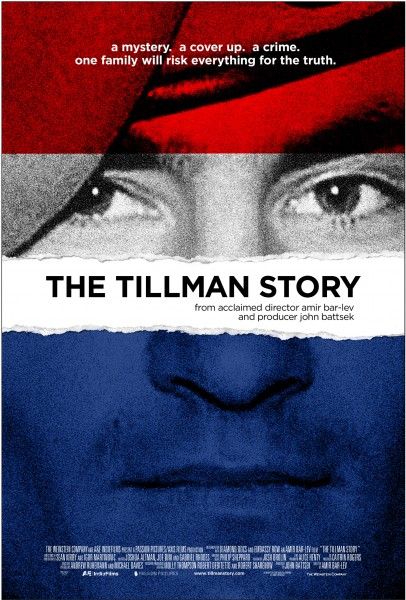"He wants me to tell him something pretty." This is the closing line of HBO's Deadwood and it is one of my all-time favorite pieces of dialogue. It perfectly sums up how we, both as individuals and as a people, want to live in a simple world where where good guys win and the bad guys lose and our cause is always just. The death of U.S. Army Ranger Pat Tillman, the football star who gave up a multi-million dollar contract to join the army, was used by the military and the Bush Administration to tell the American people something pretty. The Tillman Story is both a tragedy and a triumph. It's tragic that a man was betrayed by the country he gave his life to protect and it's triumphant that his family, the people who it would seem would most want to hear a happy ending to Tillman's life, refused to settle for something pretty.
Pat Tillman was a safety for the Arizona Cardinals, but joined the military in May 2002 in response to 9/11. He was the most famous man in the armed services and a symbol of selflessness and patriotism. He was killed in Afghanistan on April 22, 2004. His death did not fit a neat, tidy narrative so the government made one up. They said he died leading his men to safety. It later turned out he was killed by friendly fire after his unit believed they were being ambushed.
Director Amir Bar-Lev (My Kid Could Paint That) structures his film in an odd way. He leads off with Tillman's life in the military and introduces us to his family and fellow soldiers, but then circles back about 40 minutes into the film to give us a biography. Bar-Lev's depiction of Tillman is similar to the military: a larger-than-life figure without any faults.
But unlike the military, Bar-Lev isn't trying to use Tillman as propaganda or even as a figure we should all aspire to be. The Tillman Story is not a biopic. It's a movie about honor and betrayal. Bar-Lev knows these are heavy topics that don't need flash or sensationalism to keep the audience captivated. Instead, the movie is a subdued piece comprised interviews and documents.
Of course, what makes a tragedy is inevitable doom. Deep down, we know that the government isn't going to hold anyone accountable for lying to a family about how their son died. But is that the point? Does the struggle of Tillman's family to find out the truth somehow become irrelevant because our government didn't care about bringing people to justice for the lie? No, but it's not a simple resolution. The Tillman Story doesn't want to tell us something pretty, but we still need to hear it.
Rating: B+



